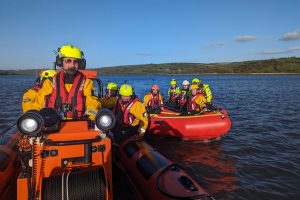CHANGES are needed to the way anti-social behaviour victims who feel their case hasn’t been dealt with appropriately are helped, a panel of Swansea councillors said.
For months the panel has been investigating anti-social behaviour – hearing from police, housing associations, business groups, and older people and younger people – to help ensure the authority tackled it effectively with other agencies.
Councillors have come up with 24 recommendations, including appointing an independent chair to oversee reviews of cases where victims of anti-social behaviour felt let down. This should be done, they said, as a matter of urgency to strengthen current arrangements.
They also suggested devolving certain enforcement measures to housing associations, increasing the number of youth workers in the county – which has been happening – expanding activities involving older and younger people, and carrying out more deep cleans of the city centre. Councillors are also keen to improve levels of incident reporting to gain a clearer picture of the problem.
The panel concluded that the council and its partners were working effectively to tackle anti-social behaviour in Swansea and address its underlying causes, but said the overall picture of services and support was confusing. The council does not have a specific anti-social behaviour team, but has an officer who responds to all anti-social behaviour referrals that came through, mainly to ensure there was a co-ordinated response and to be a link between various departments and agencies.
Anti-social behaviour, as defined by law, is conduct that has caused, or is likely to cause, harassment, alarm or distress to any person, conduct capable of causing nuisance or annoyance to a person in relation to that person’s home, or conduct capable of causing housing-related nuisance or annoyance to any person.
Evidence indicates that there has been an increase in anti-social behaviour in the city centre. During the inquiry Russell Greenslade, of business group Swansea Bid, said it had got a lot worse over the 13 years he had worked for the group – despite the many good things happening in the city – and that more resources were needed.
Anti-social behaviour is by no means unique to Swansea. It is complex, dealt with by various agencies depending on what has happened – and the panel said no-one had all the answers.
Perception was a theme that emerged in the panel’s report, particularly when it came to gatherings of young people. A representative from youth charity YMCA said: “Young people are not wanting to cause fear or anti-social behaviour. They are hanging around in large groups because that is often how they feel safe.
“We need to break down these perceptions between older people and younger people. I think older people need to be understood by younger people, and also young people need to be understood by older people. And I think once that comes together it will break down a lot of the barriers.”
The panel’s report said: “We felt it is vital that young people feel a part of the community, and when they are they are more likely to have positive behaviours within it.”
However, evidence has indicated that since the Covid lockdown there has been an increase in anti-social behaviour, specifically youth-related.
Additionally, reports of anti-social behaviour in the city centre actually increased alongside an order by the council which sought to reduce it by banning certain activities, among other measures.
For older people, feeling safe was key. One member of an old people’s group said: “I would just like to say that to be perfectly honest, a lot of older people feel very, very vulnerable, especially in the evenings, walking around in Swansea and in the local areas, because we just feel that there is no one around and we do not know where to go to if we need help. I do think that this issue really needs to be looked at.”
The inquiry panel is discussing the final report at a meeting on October 18.



















